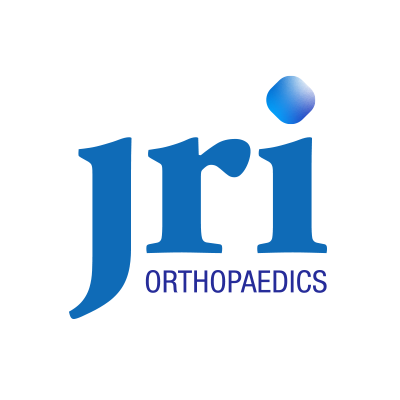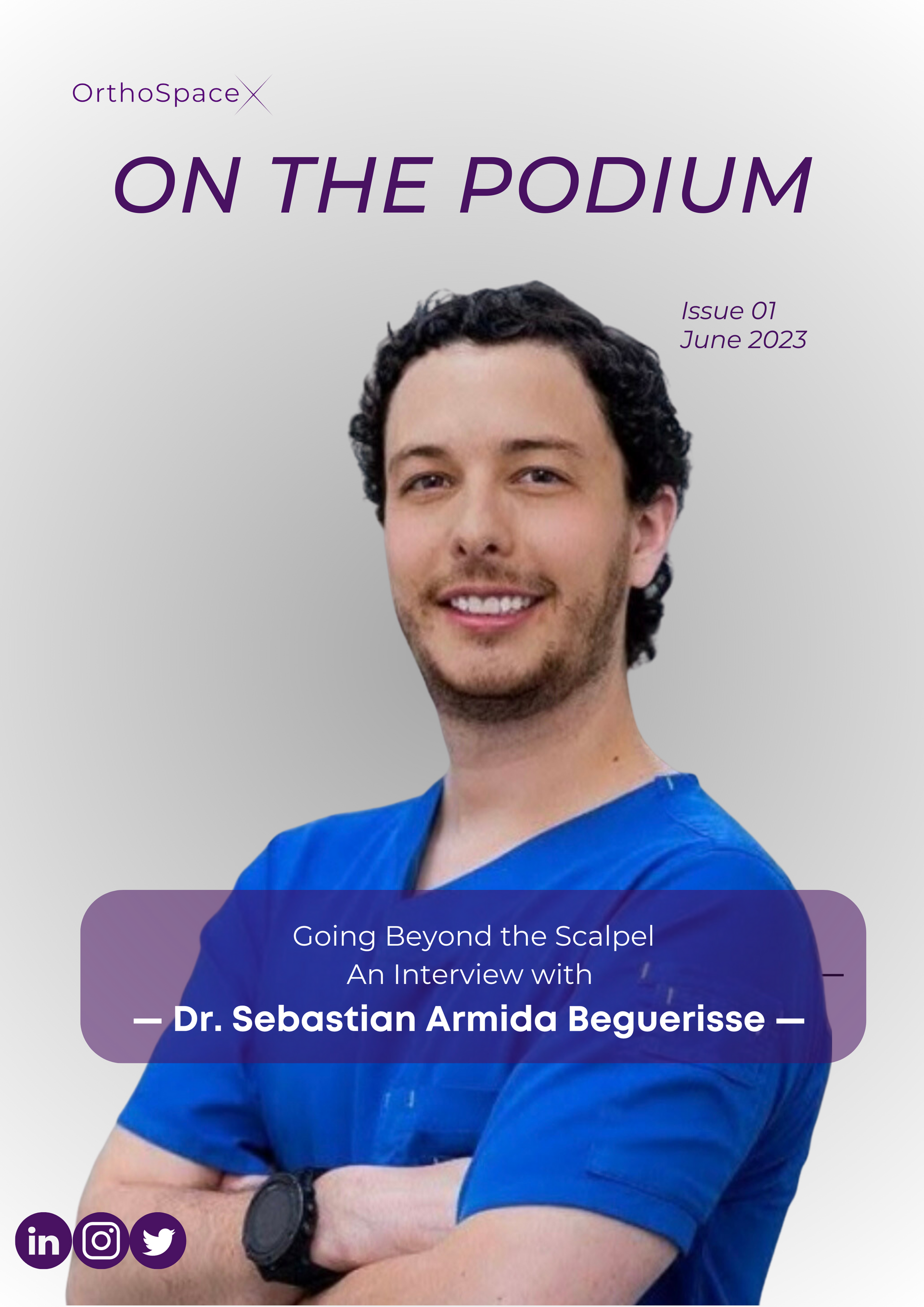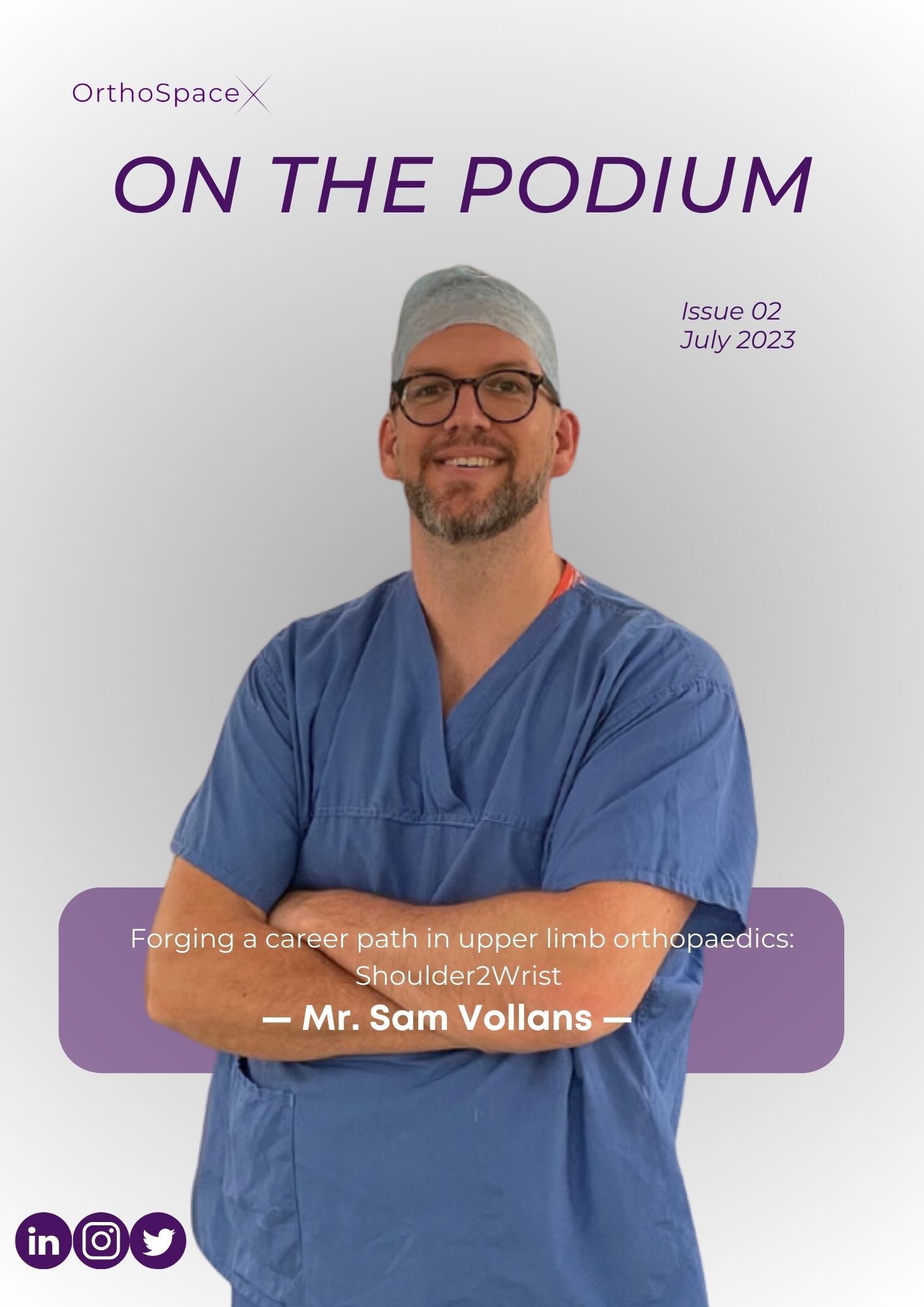A Pioneer of wide awake hand surgery
An interview with:
— Mr. Alistair Phillips —
Issue 09, April 2024

Can you share your experiences and insights from your fellowship training at the Pulvertaft Hand Centre in Derby?
The Pulvertaft hand centre in Derby is a world-renowned centre of excellence for hand surgery and I was most fortunate enough to be able to work there for my fellowship. The hand centre is separated from the main bulk of the hospital and it felt very much like it was a self-enclosed centre. When I worked there there were eight consultants and I believe there are now 10. It was mainly staffed by five fellows of which I was one and we were thoroughly well supported by the consultants on the shopfloor. Because it's a tertiary referral centre we saw the most amazing pathology and all the latest innovations, techniques and experience. I remember one occasion when an unfortunate gentleman had cut his hand off at the wrist and all the fellows turned up, even though it was 11 o'clock at night, to watch. We all just rang each other up and that was the spirit that the consultant body engendered in its fellows. We were very much a team. I've never really worked anywhere before or since that had that sort of atmosphere. It was very unique and quite superb. The other benefit of going away on fellowship was that I was able to work incredibly hard during the week often until later in the night and travel home to Plymouth at the weekend to be with my family. This allowed me to really concentrate and do a huge amount of work in what felt like a short period of time.
What motivated you to specialise in hand surgery, and how has your training shaped your approach to patient care?
I trained in the peninsula training rotation in Devon and Cornwall and I had a fantastic experience there. It was a very busy rotation with heavy emphasis on trauma and I rotated between Derriford in Plymouth, Treliske in Cornwall and the Royal Devon and Exeter Hospital in Exeter. All in all I just was inspired more by the hand surgeons that I worked with than the other surgeons. You get to sit down to operate! Your operations don't really last more than two hours and although as a consultant, I did major trauma at Southampton, hand and wrist was always my first love. I love the fiddliness of the myriad of anatomy in such a small space and also how hand surgery plays second fiddle to a lot of other areas in the body. I quite like that because it means we can go under the radar with the amazing things that we do and then suddenly people go "Wow, you're doing what? That's amazing". like the new tiny miniaturised hip replacements we’re putting in in the base of the thumb that Alistair Jepson talked about in a previous OrthoSpaceX edition, ultrasound guided surgery through an ultra minimally invasive incision for things like carpal tunnel and Trigger finger and using anaesthetics which is obviously my passion.
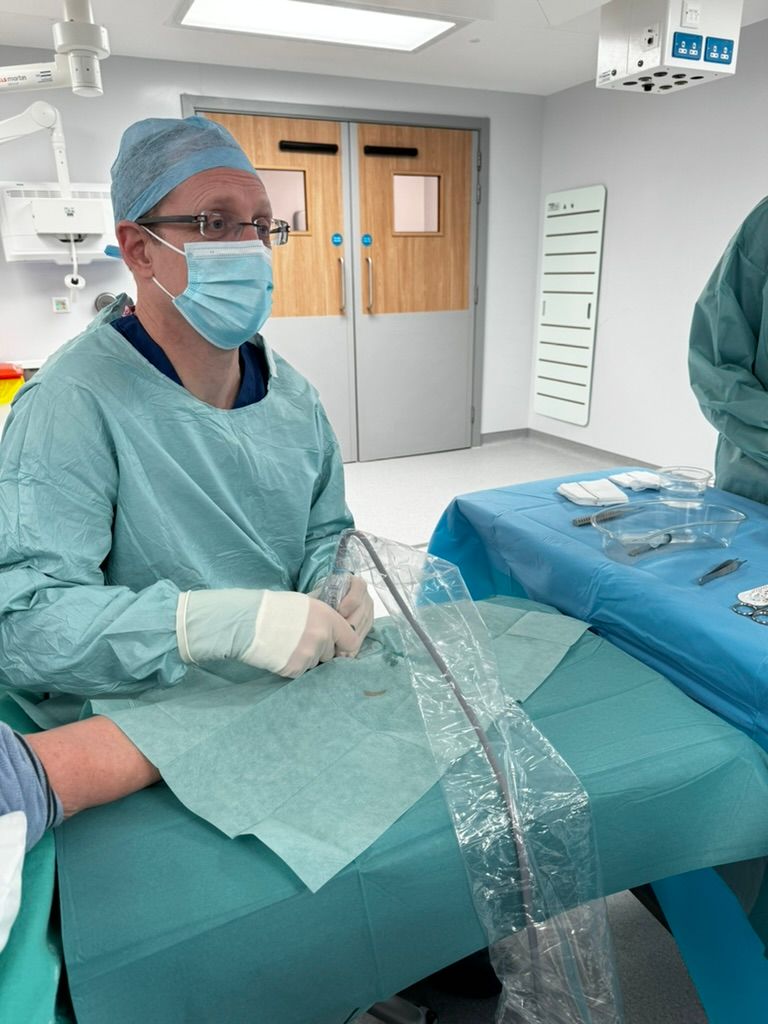
You won the British Society for Surgery of the Hand (BSSH) prize for your instructional video on Wide Awake surgery. Can you tell us more about the video and its impact?
This video was the result of a collaboration with myself and Nik Jagozinski, who now works in Barnstable. We went over to see Don Lalonde in New Brunswick, who is a sort of godfather of Wide awake local anaesthesia no tourniquet (Walant) surgery. When we saw him he was talking about writing a book but was loath to because of the amount of work involved because it is enormously heavy going coordinating a lot of other people to write the chapters with you but we finally persuaded him to. While we were there we recorded a lot of video footage of how he did things and what operations can be done under Walant and edited those into the video that we submitted to the BSSH. Nik and I were delighted to win the prize and having had it up on Vumedi and my Walant channel, it has been viewed nearly 10,000 times! I didn't realise it would take off quite in the way it has done but it has also taken a lot of work!
What inspired you to contribute to the book "Wide Awake Hand Surgery" by Don Lalonde, and what was your experience like working on this project?
As I mentioned above, we saw Don at home in New Brunswick, Canada and persuaded him that everybody needed to hear what he had to say. The book reads like watching him in one of his clinics! It is a complete regurgitation of his thoughts and it is wonderful. It's now on its second edition and all proceeds go to charity and in particular the Lean and Green sponsored by the American Society for Surgery of the Hand to promote more environmentally friendly practices in hand surgery.
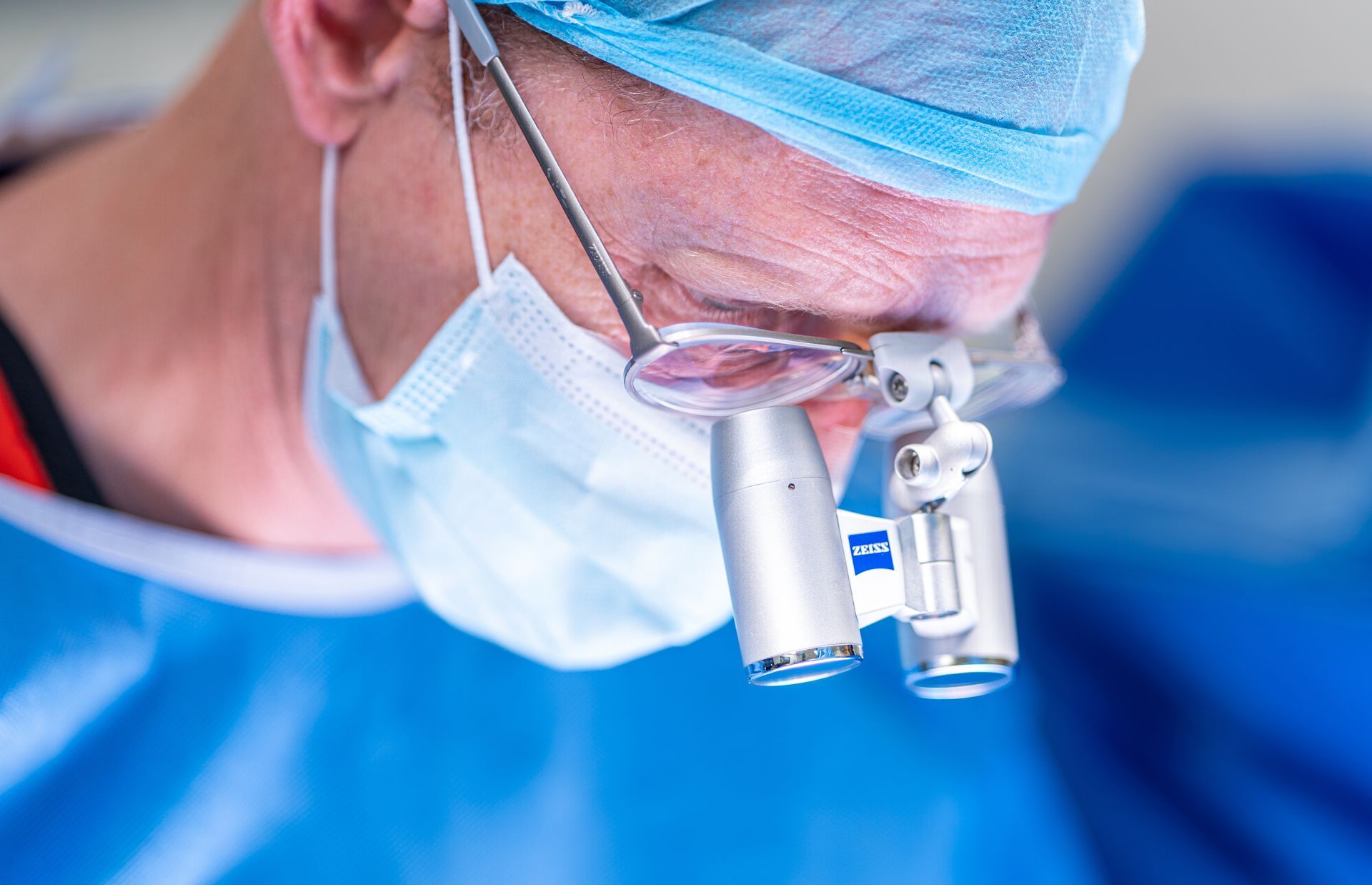
Can you walk us through a typical patient journey when undergoing hand surgery with the "Wide Awake" technique?
One of the beauties of wide-awake surgery using local anaesthetic and adrenaline is that it is incredibly patient centred. Lots of people or institutions say they are patient centred but in reality they still have bills to pay and/or shareholders! Walant is simply a local anaesthetic technique and all the benefits of using local anaesthetic apply to it. Things such as you do not need a pre assessment, you do not need to stop taking any medications including anticoagulants before surgery. Because we're not using a tourniquet which is the big difference between Walant and simple local anaesthetic we do not need anaesthetist to take away the pain of the tourniquet and we are not restricted with time. A person can really only hold on to a tourniquet for 15 to 20 minutes whereas the one percent Lignocaine with 1:100 000 adrenaline will last for 4 to 5 hours. Because there are less people in the system it's much more efficient for patients so they can arrive later and leave earlier. The other big issue with a lot of operations in orthopaedics is that patients are not informed and educated well enough in my opinion. During a wide-awake operation we have the opportunity to not just vindicate their pain by telling them/showing them the pathology and how bad it was but also educate them about what I'm going to do to fix it and that I have fixed it more importantly. We can then check our reconstructions/repairs so that we and the patient have confidence to mobilise early after the operation with impunity. That is amazingly important for patients and I should know...I've had my own hand operated on under Walant. I was able to see that it was now fixed and I could carry on with my career. It was a moment I shall never forget!
You contributed to the BSSH Walant Handbook as a free resource for hand surgeons worldwide. Can you share some insights into the development of this handbook and its intended impact?
This was an extremely important project to me because it was a collaboration. Covid was a very difficult time as we are all aware for surgeons and patients and having the evidence to allow hand surgery to continue and to extol the virtues of Wide awake surgery globally was a marketing dream for Walant! The handbook was taken up by many societies abroad as well which was very pleasing to see. It was downloaded many thousands of times. It involved some of the foremost authorities in the UK on Wide awake surgery and it was an honour to be part of that.
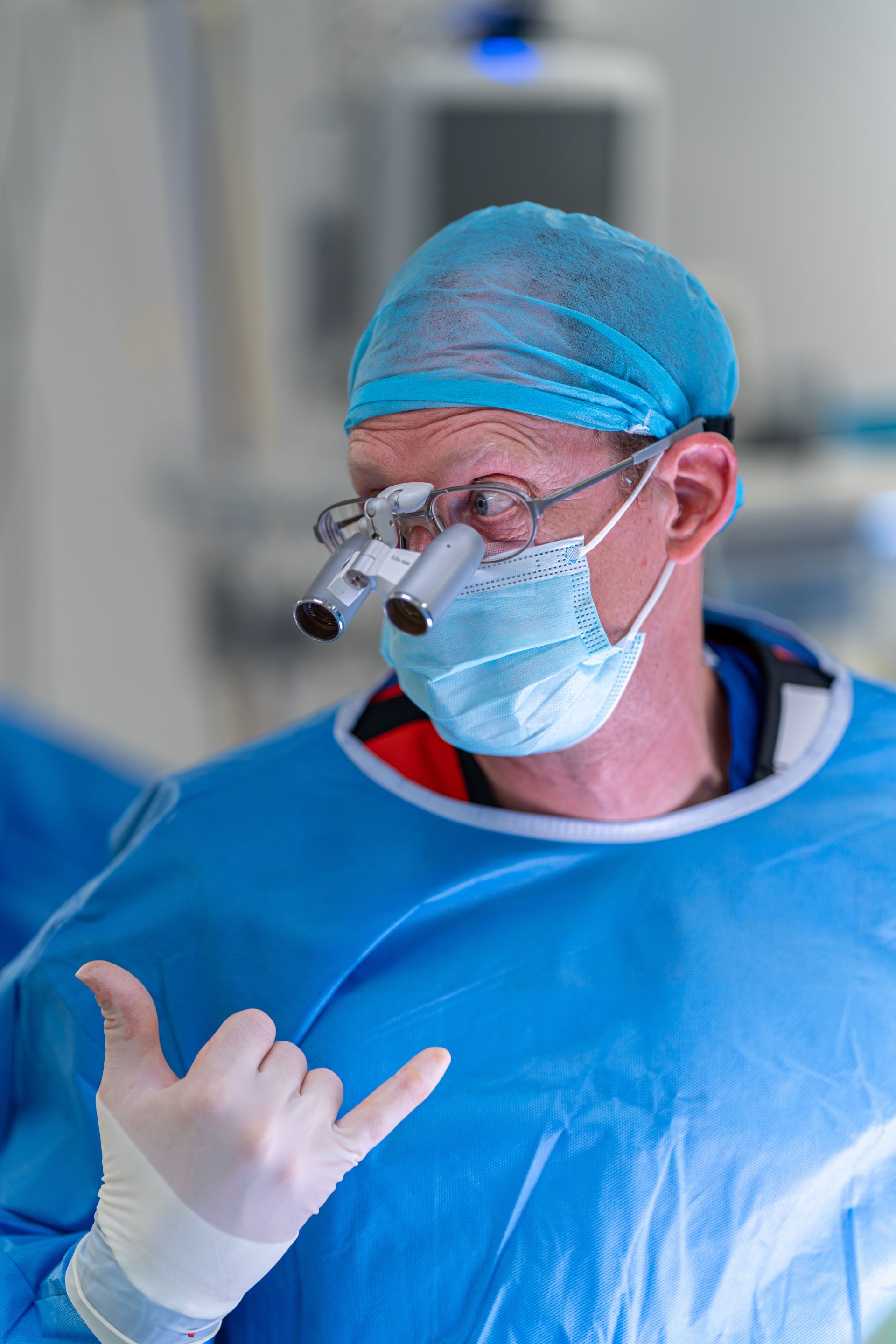
With more than 15 peer-reviewed articles and ongoing research projects, can you highlight some of the key findings or areas of interest in your research?
What's interesting about when you're a trainee is that you really generate research articles that you're told to write! All of these projects were collaborations of course but I'm not a huge fan of research if the truth be told! There are some good papers out there but I could probably count them on one hand, or at least the ones that have changed my practice. I fundamentally believe that no matter how much research goes on, actually doing the operations we have currently, but better and looking after our patients in a more patient-centred manner will benefit those patients far more than finding out new evidence for whatever we have chosen to look at with our registrar! If we can genuinely build systems and processes and the patient journey around an amazing patient experience I believe the patient will be happier, get better service and also more importantly get better more quickly. I have the privilege to be able to do that for my patients now and it is my all consuming passion at the moment. I feel very strongly that doctors and more importantly surgeons, should be given much more time and resources to spend communicating with patients and that would benefit patients far more than any more research! I appreciate why people want to do research because it's interesting and pushes the boundaries but I think there is far too much of it and it should be more collaborative with large institutions or societies coordinating exactly what research questions need answering rather than churning out the results of my last 50 this or that operations! Call me controversial but the balance is wrong in my opinion.
What aspects of hand surgery do you feel are most important for future generations of surgeons to understand?
There is increasing evidence to support minimally invasive surgery with scars and skin adhesions causing pain post-operatively that is just not necessarily needed. I use ultrasound to guide my carpal tunnels and trigger fingers and the results are spectacular! It utilises a 3 mm incision instead of a 2-3 cm one and my patients have told me that they are back to "normal" after 7 to 8 days instead of 2 to 3 weeks. It has opened my eyes to the potential of ultrasound and I now use it for as many things as I can! I've also started to use it to define pathology in clinics and it is very good for educating patients because they can see the pathology and again, feel vindicated that they are not making it up! Equally I think the pressure on future generations will be to do more for less with less resources, less support and with less incentive. I think we are at a very critical juncture in medicine and particularly the NHS. It is a huge concern of mine that the doctors of tomorrow are inheriting a broken system which is going to break them. It's not all doom and gloom. I'm sure that the Phoenix will rise from the ashes but it is also interesting to see what techniques and personalities will flourish and maybe this is just evolution happening at a much faster pace! The NHS is unlike almost every other system in the world and I love it for what it stands for but not for what it gives patients. Most patients have an excellent experience despite not because of the service itself. That is what I think the future generations of surgeons will have to grapple with and the pace of change is going to be huge with things like artificial intelligence and robotics. It's a very exciting time!
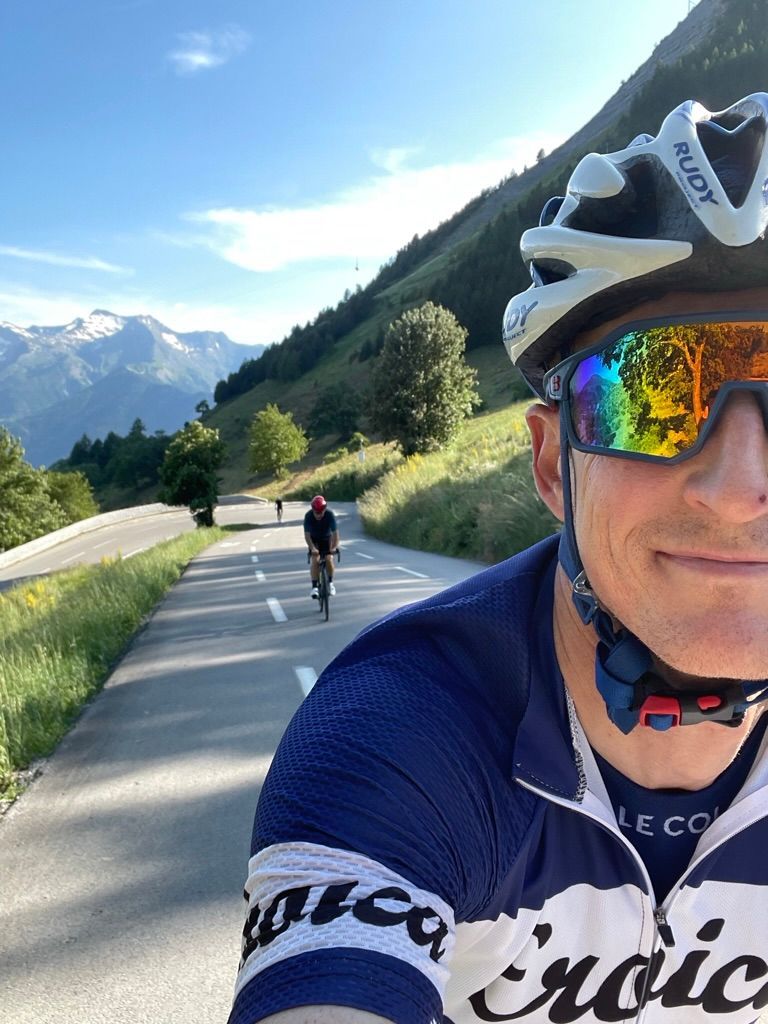
What advice would you give to aspiring hand surgeons or medical professionals interested in pursuing a career in orthopaedics?
Orthopaedics is the absolute best career within medicine! I would definitely not have done anything else and any potential orthopods out there thinking of doing hand surgery can come and join me and I will enthuse them to the end of the world. Hand surgeons tend to be extremely nice people. There are always exceptions but when you look at hand surgeons in a room there is a lot less ego and a lot more emotional intelligence on the whole. If that sounds like you then give me a call and come and join me!
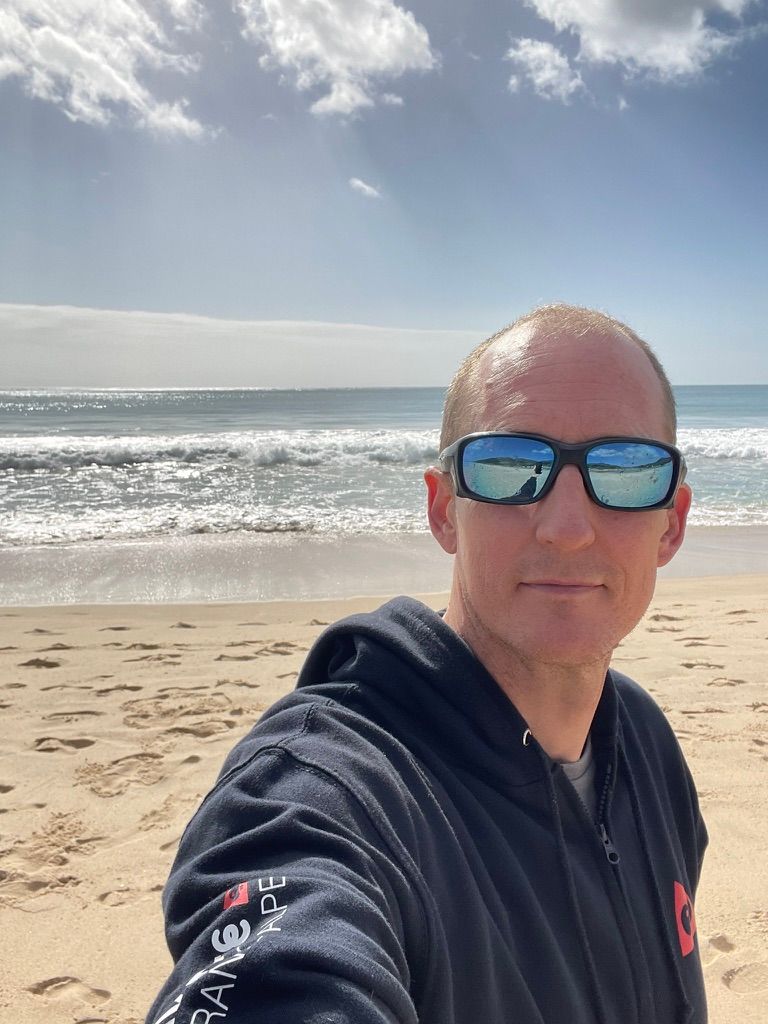
Looking ahead, what are your aspirations for the future of hand surgery, both personally and professionally?
I am generating multimodal education for patients and my aspirations are to be able to offer patients reliable and trusted information that is relatable so that they can reduce their anxiety and feel more secure about their choices.
What's incredible, as a patient recently having broken my own shoulder and had to have it fixed (three-part proximal humeral fracture - skiing!), is that I had zero anxiety even from the moment I remember breaking it onwards. I knew when I needed to have it fixed, who was going to fix it, who was going to put my regional anaesthetic in, what my rehabilitation was going to be like because I have fixed many shoulders in my life. I suddenly realised that if you didn't know any of that, the anxiety for your future function, work, hobbies, and home life could be paralysing.
We, as doctors, need to understand that patients are deeply anxious about their problems and we can either alleviate that or not. That is my aspiration for the future of hand surgery personally and professionally. I am currently creating videos, slide decks, blog posts, FAQs, a chatbot and a new website as well as starting generating TikTok, Instagram, Twitter and Facebook accounts and content. Digital marketing for not just our own brand but for hand surgery in general is a huge opportunity. We need to grasp it or fall behind!
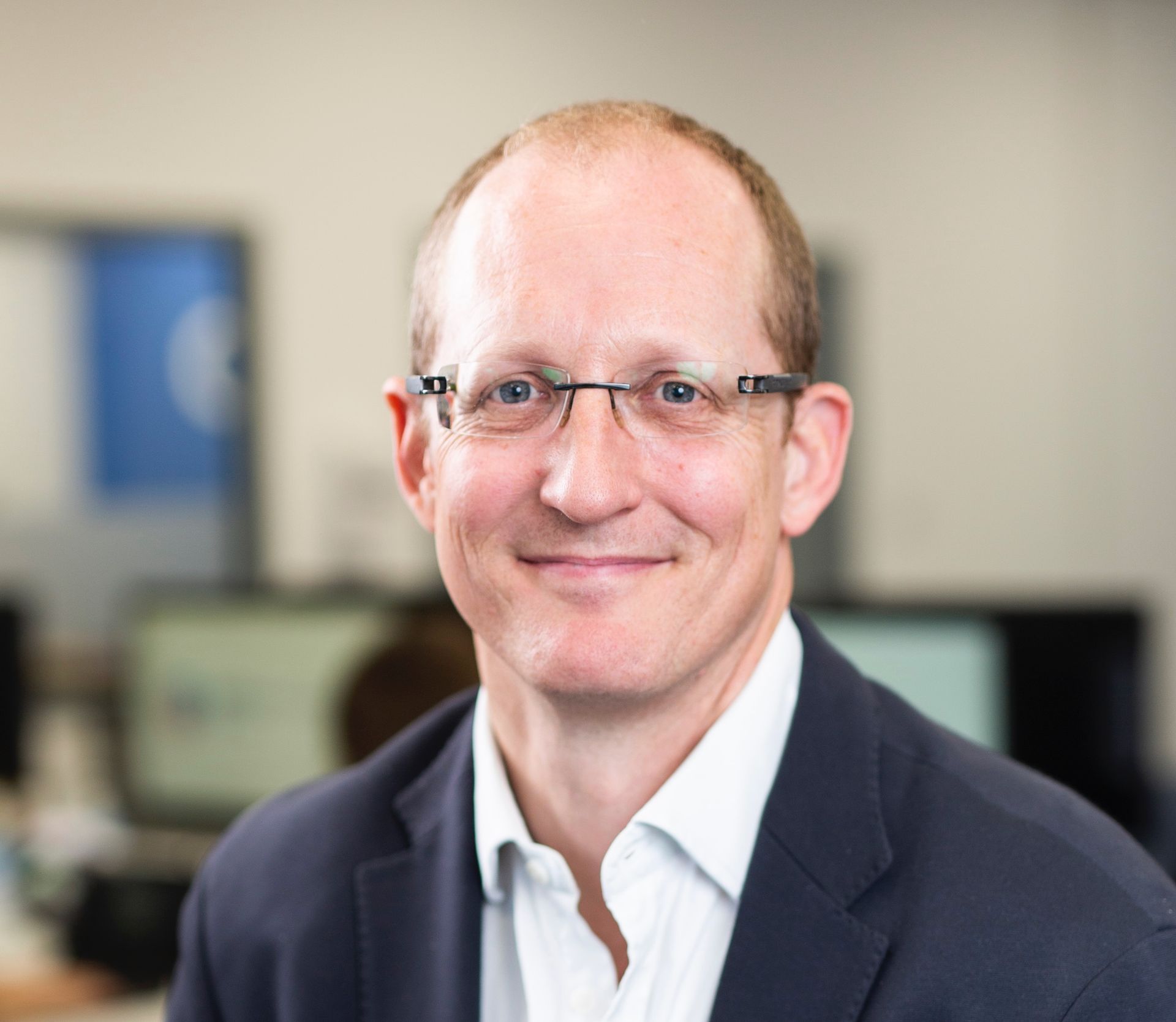
Mr. Alistair Phillips
Mr. Alistair Phillips exclusively specialises in treatment of hand, wrist and elbow conditions, and has a special interest in the use of local anaesthetics. Mr Phillips performs many surgeries under local anaesthetics that would traditionally have been undertaken using a tourniquet and/or a general anaesthetic, and is now concentrating on this technique as he has seen first-hand the various benefits to patients.
His empathy for patients is obvious from the first meeting, and he has specifically designed his pathways to place the patient at the centre of his care - reducing inconvenience and needless appointments, performing the injections of local anaesthetics almost painlessly, only operating when absolutely necessary and providing as much information as possible before, during (as patients are awake, and alert) and after surgery to keep patients as educated and involved in their own care as possible.
He is the co-founder and chairman of a charitable website which seeks to educate surgeons from all over the world about this technique - Wide Awake Local Anaesthesia No Tourniquet (WALANT). He has lectured internationally on the subject, and was invited to speak at the combined Belgian and Dutch Hand Societies meeting in March 2019, and also to be faculty at the inaugural WALANT course in the UK, in Wrightington, in May 2021.
Read more about Mr. Phillips’ practice
here
We would like to thank Mr. Alistair Phillips for his time and insight into orthopaedic excellence.
Thank you to our sponsor:
JRI Orthopaedics
To download this issue of On The Podium, click below.

Sign up to On The Podium. The latest insights and inspiration from orthopaedic specialists around the globe sent straight to your inbox.
On The Podium
The newsletter brought to you by OrthoSpaceX
| Engage with Orthopaedic Leaders | Exclusive orthopaedic insight | |
| Stay Ahead in Orthopaedic Advancements | Uncover Surgical Innovations | |
| Empower Your Orthopaedic Knowledge | Unlock the Minds of Orthopaedic Specialists |

